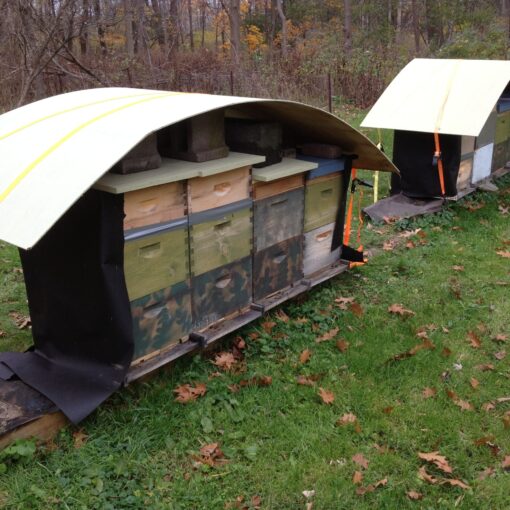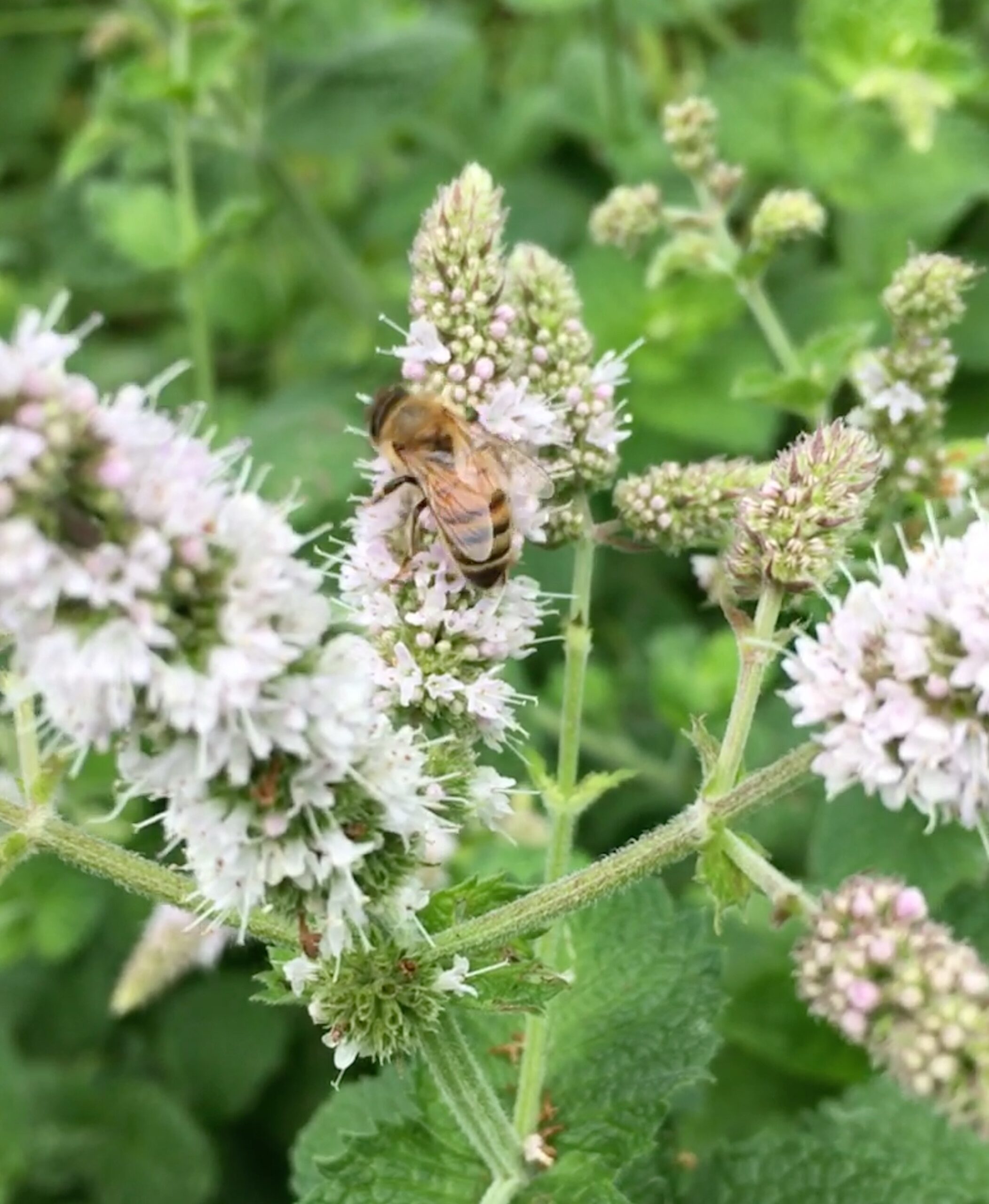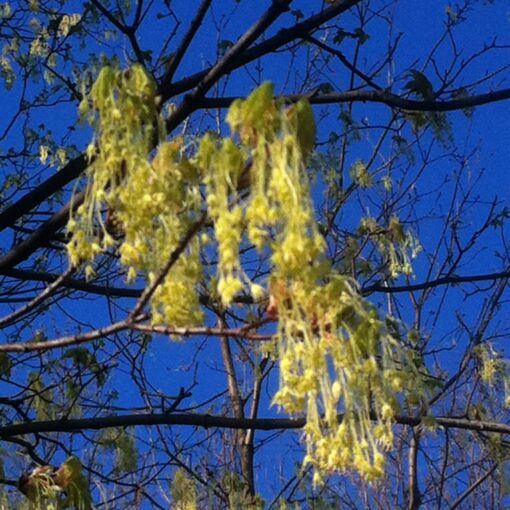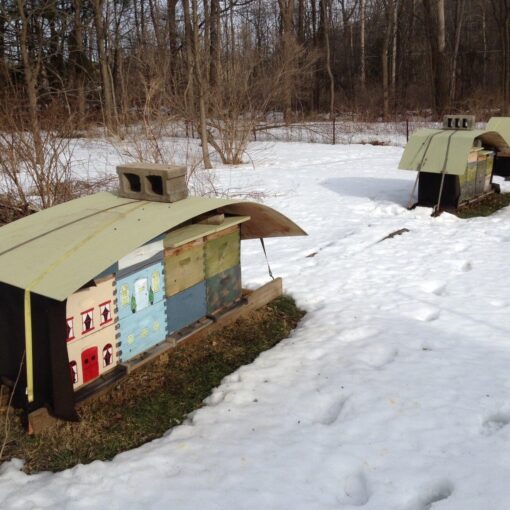I tried an experiment this past fall and I must admit I felt I was gambling a bit with my bees and did not want to share if the experiment went bad. I had what appeared to be 11 healthy hives going into winter with 1 a bit low in population however it acted the same last year so I was not too concerned. Out of the 12, 3 were new to the yard and 2 simply felt a bit light. The 7 others seemed to have some weight so I was confident there was enough honey in them to make it through winter.
The new hives were going to take some work in order to get ready for winter. I needed to build up the five: a swarm that I captured late in the season, a cut out from an old farmhouse and a small split from a frame of eggs and a few bees. Another was a hive that I got as a swarm 2 years ago and a veteran Russian Carniolan mix. Since 3 of hives were on new frames I frantically had to feed to get a good supply of honey built up for winter stores.
The year before I purchased a commercial mite treatment that contained thymol so I thought perhaps if I made a strong tea from thyme and mixed it in with sugar syrup it may have a similar effect. The bees seemed to be indifferent to the strong thyme taste. I was curious and tried it myself as a tea with a bit of honey; it was very acrid and not very palatable as a tea. I made the tea in a French press and used about 1 oz of thyme to about 8 oz of water, steeping for a good 5 mins. I added this to about a 1.5+ to 1 ratio of sugar to water in a total volume of about 1 gallon. I was not being too scientific just trying to get as much sugar as I could to dissolve into fairly hot water. Each hive was taking about a quart of syrup a day and I fed for about 3 weeks before the first frost. All in all across the 5 I fed about 150lbs of sugar. I also made and added bee candy to the 12 hives. I did not treat the 7 with anything as they seemed to have a good strong population.
The 7 lost hives starved as it was apparent the cluster did not move to fresh honey stores. Genetics could be part of it as the surviving stock is definitely a mix of different bees. The survivors are dark with a majority looking mostly Russian but they are a mix of colors across the spectrum from total black, some brown like Carniolan to ones with top half of the abdomen a bright yellow gradually getting darker with black tails. Is this a genetic amalgam from bees in the yard or just a well mated queen? Of the 7 lost, the week one or the one low in population was the 2 year old Italian, 4 were Carniolan, 1 a 2 year old swarm and the other a was a Russian Italian mix.
When I opened the dead hives there was plenty of available honey and clusters of dead bees between the frames. When I looked closely I found that I did see many dead mites along with the dead bees.
I am not entirely convinced that my experiment proves anything except that I did not kill bees with simply adding the thyme brew to the sugar syrup and mite control is essential for overwintering bees.



